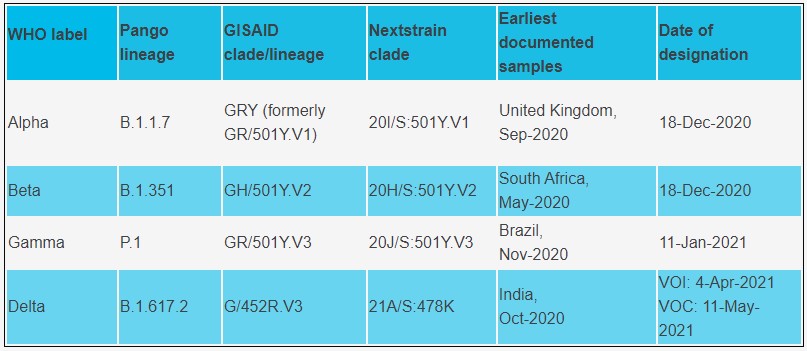COVID-19 variants will now be named using letters of the Greek alphabet to avoid stigmatising countries where they were first detected, the World Health Organisation (WHO) has said.
When reporting or referring to the Covid-19 variants, the media and people often referred to the various variants by their country of origin.
For example, instead of saying the B.1.351 Covid-19 variant discovered in South Africa, people would say the ‘South African variant,’ which was wrong as countries felt discouraged to announce they had identified new variants fearing the stigma of association.
In the latest development, on Monday WHO assigned the Covid-19 variants new Greek names according to the order of their detection.
The variant B.1.1.7 first detected in the United Kingdom becomes Alpha, the B.1.351 first discovered in South Africa will be known as Beta, the P.1 variant first detected in Brazil will be called Gamma and B.1.617.2 first seen in India becomes Delta.
“While they have their advantages, these scientific names can be difficult to say and recall and are prone to misreporting… As a result, people often resort to calling variants by the places where they are detected, which is stigmatising and discriminatory. To avoid this and to simplify public communications, WHO encourages national authorities, media outlets and others to adopt these new labels,” the health agency said.
According to WHO and health experts, the choice of the Greek alphabet comes months after deliberations, where other possibilities such as Greek gods and invented, pseudo-classical names were also considered.
However, the combination of alphabets and numbers separated by dots, which is difficult for an ordinary person to announce, will continue to be used in scientific circles.
WHO officials said once the 24 letters in the Greek alphabet were exhausted a new name series would be announced.
Reports say historically, viruses have often been associated with the locations from which they are thought to have emerged, such as Ebola that is named after the Congolese river.

